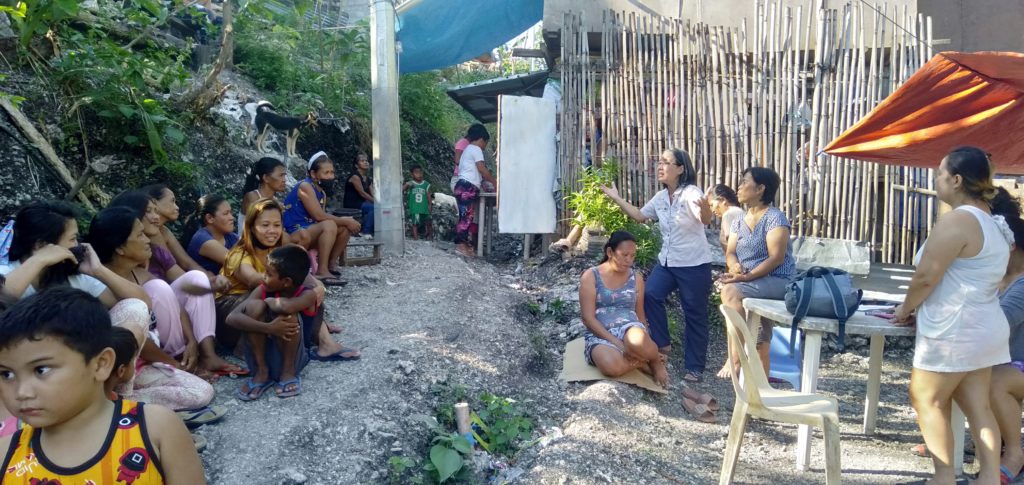Further development of the community-based health program in two rural barangays in Bohol is expected to continue this year with the recent approval of the project by the Asian Community Trust (ACT) of Japan.
The ACT committee through its Executive Secretary Mr. Michio Ito informed the VPHCS after a meeting last March 23 of its continued support of the project “Strengthening community-based health programs to promote health and prevent disease in Bohol” in Barangay Sto. Nino in the municipality of San Miguel and Barangay Caluasan, Dagohoy in the municipality of Bohol. There are 25 households (679 population) in Sto. Nino and 402 households (2,132 population) in Caluasan.
The project started in April 1, 2010 in partnership with the people’s organizations, Hugpong Mag-uuma sa San Miguel (HUMASA) or the Farmers Association in San Miguel and the Mga Mag-uuma sa Lakalsanda Apektado sa Land Levelling (Farmers in Lakalsanda affected by Land Levelling) in Caluasan. Community health workers (CHWs) were equipped through basic health skills trainings conducted with knowledge and skills to address the health problems in the communities. As a result, they are now leading their respective people’s organizations in conducting health education classes on nutrition and basic home remedies and rendering health services which include operation blood pressure and ventusa.
Common health problems identified in the community diagnosis in the two barangays last June included respiratory tract infections, influenza, hypertension, diarrhea, muscle pains and fatigue, and common infections that can be prevented and managed through continuing health education and basic health services that can be rendered by the trained CHWs.
The second year of the project starting on April 1 aims to sustain the services of the trained CHWs and health awareness raising and promotion among the residents, institute a family planning program in Caluasan and a nutrition program to address the problem of malnutrition, and mobilize the people’s organizations to link with the rural health units and other agencies that would address their health needs.
Additional four basic health skills trainings and four special skills trainings for the 20 trained CHWs, monthly community health classes, and four medical missions shall be conducted in the second year.
The project aims to reduce the prevalence of preventable and communicable diseases in both barangays. by empowering the people’s organizations to deliver basic health information and services in their communities and to manage and sustain their community-based health programs.



